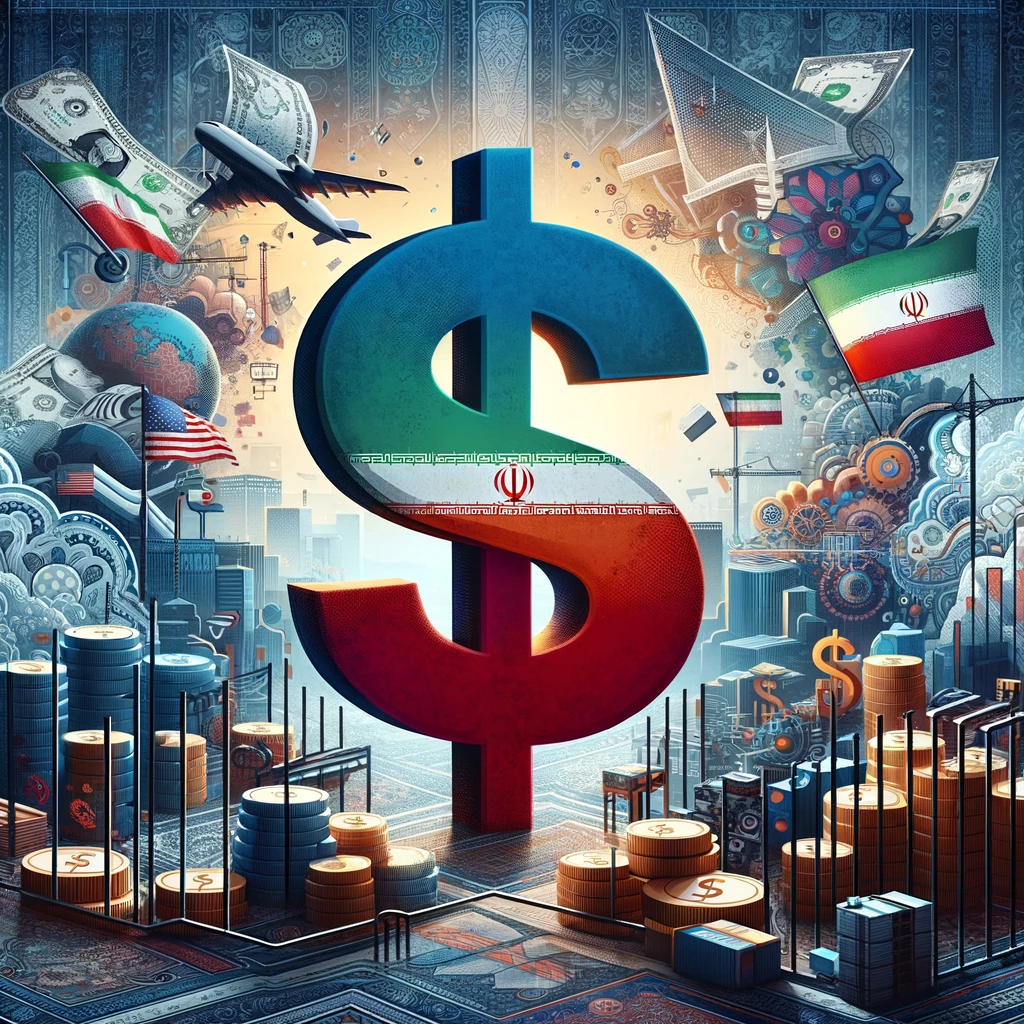Amid a turbulent global economic climate, Iran finds itself at the forefront of a decisive shift in financial strategies, making moves to limit local transactions in US dollars. This maneuver comes as part of a broader strategy aimed at reducing the nation’s reliance on the US currency, a move that reflects Tehran’s pursuit of greater economic sovereignty and its response to international pressures.
Iran’s Economic Waters
The recent decision by Iraq to restrict eight of its local commercial banks from engaging in US dollar transactions marks a significant turning point in the Middle East’s financial landscape. This action, ostensibly aimed at curbing fraud, money laundering, and the illicit use of US currency, underscores a growing trend towards de-dollarization in the region. The banks, now barred from participating in the Iraqi central bank’s daily dollar auction, find themselves at the heart of a US-led crackdown on currency smuggling, particularly to Iran. This development is not merely a localized financial maneuver but a nod to the complex interplay of international relations and economic strategies that involve Iran directly and indirectly.
The move has broader implications, given Iraq’s unique position as an ally to both the United States and Iran. With over $100 billion in reserves held in the US, Iraq’s economic stability is intricately linked to its ability to navigate the demands and pressures of its powerful allies. The recent banking restrictions, verified by central bank documents, represent a critical step in Iraq’s efforts to align with international financial norms and combat the misuse of its banking sector for money laundering and other illicit activities.
Iran’s position in this scenario is particularly interesting, as it watches its neighbor and economic partner grapple with the challenges of adhering to international standards while maintaining national interests. The Iranian government, under the weight of US sanctions and global scrutiny, has long sought alternatives to the US dollar to facilitate its trade and minimize the impact of economic sanctions.
A Shift Towards Multipolarity
Iran’s response to these developments is telling of a larger strategy at play within the BRICS economic alliance, particularly with its push for a new digital currency in 2024. This ambition signals a clear intent to move away from the US dollar’s dominance in international trade and finance. Iran’s advocacy for a BRICS currency underscores a strategic pivot towards multipolarity in global economics, aiming to diversify away from traditional financial systems and institutions that are heavily influenced by Western powers.
This move is not without its challenges and complexities. The BRICS alliance, while a formidable economic bloc, faces the daunting task of creating a cohesive and universally accepted digital currency. The endeavor represents not just a financial innovation but a bold political statement against the current global financial order. Iran’s role in spearheading this initiative reflects its desire to not only circumvent US sanctions but to also position itself as a key player in shaping a new economic paradigm.
The backdrop of this economic maneuvering is a tense geopolitical landscape, where military and diplomatic tensions frequently intersect with financial strategies. The US, for instance, has not shied away from launching strikes against Iran-backed groups in the Middle East, signaling a broader conflict that transcends mere economic disputes. These military actions, coupled with diplomatic efforts to stabilize the region, add layers of complexity to Iran’s economic strategies and its relations with both regional and global powers.






